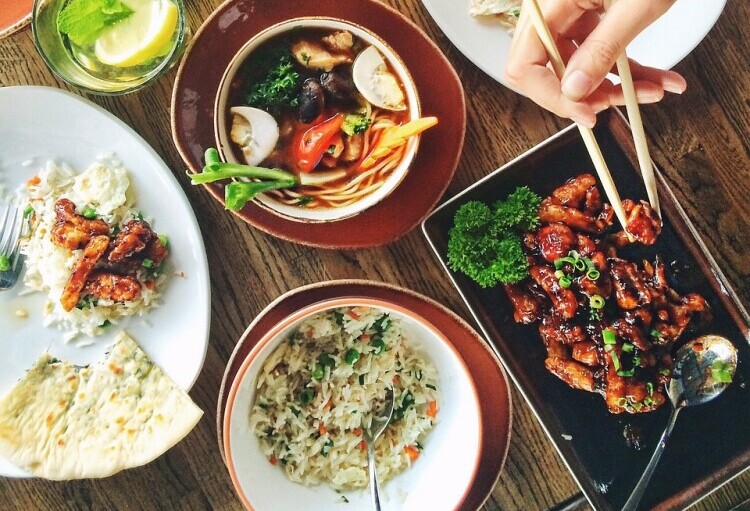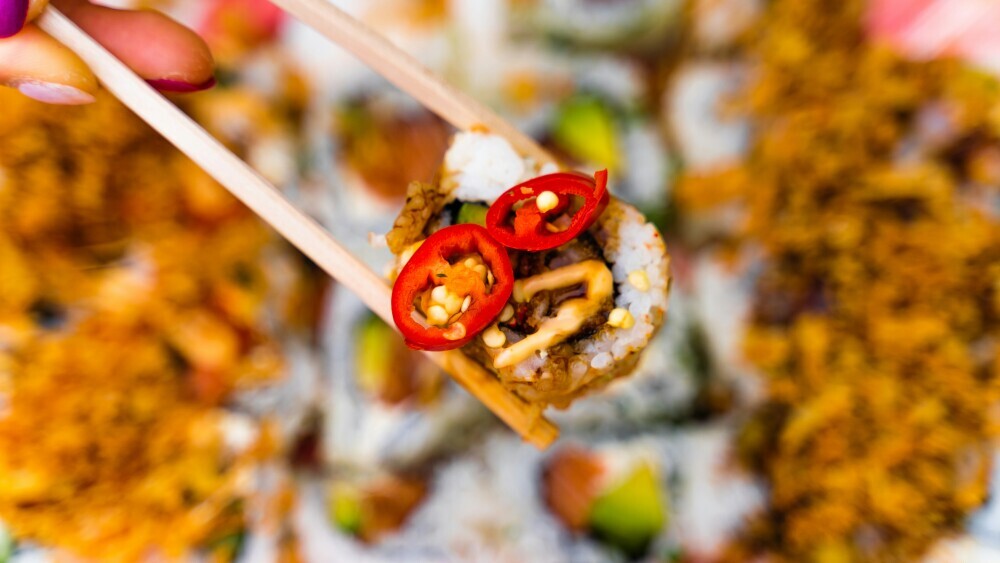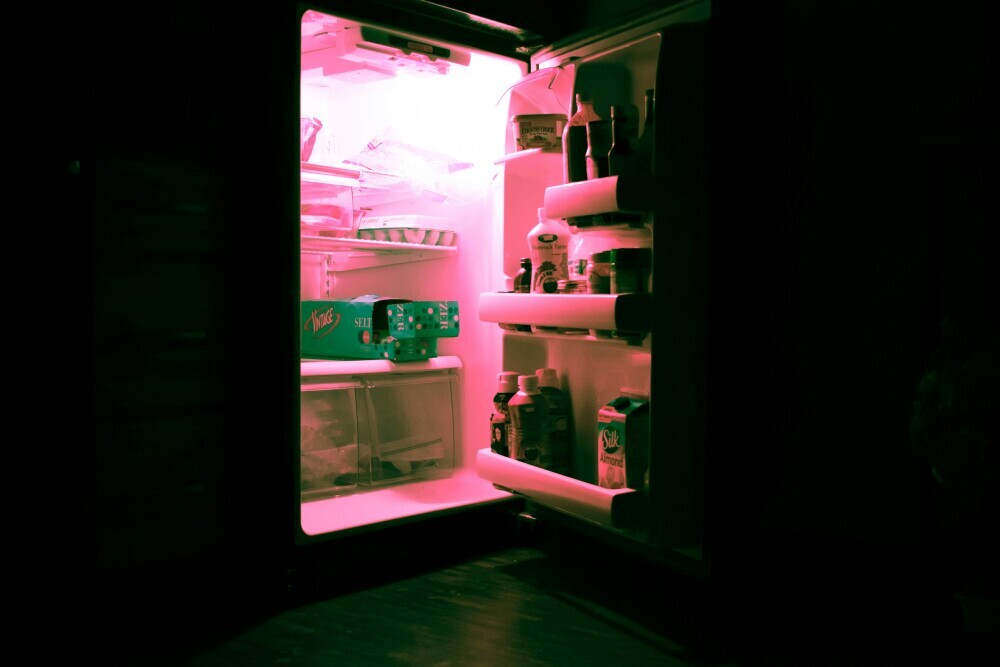How Food And Diet Influence Your Dreams At Night
Dreams are these fascinating nighttime adventures where your brain spins stories and scenarios that seem totally random or eerily connected to your daily life. Researchers have dived deep into this mysterious world, trying to figure out what dreams say about us and why they happen in the first place.
For ages, folks have pondered whether what we munch on before bed could stir up the dream pot. There’s some interesting chatter about that idea. A few experts think diet might play a quirky role in shaping what dances through our heads as we snooze.
Dreams are like a glimpse into the subconscious mind—some say a backdoor into understanding our innermost thoughts and feelings. Do you dream about getting chased by a giant donut? Maybe it’s time to question those late-night snack runs! Jokes aside, these nighttime narratives might tell us more than we realize, including hints about our mental and physical well-being.
Should you reach for a notebook to jot down your dreams alongside your breakfast plans?
Stay curious about the stories unfolding behind your closed eyelids!
How Nutrients Shape Dream Vividness
 Let’s chat about what happens behind the scenes of your dreaming brain. Did you know the stuff you chow down on can shake up your dream game? It’s all about the nutrients powering your brain cells during sleep.
Let’s chat about what happens behind the scenes of your dreaming brain. Did you know the stuff you chow down on can shake up your dream game? It’s all about the nutrients powering your brain cells during sleep.
Vitamin B6: The Unsung Hero of Dream Clarity
Think of nutrients as the backstage crew making sure the show goes on. For example, Vitamin B6 is like the unsung hero here, helping your body produce neurotransmitters that are key players in the dream process. When these guys are in the right spot, your dreams could be as vivid as a blockbuster movie.
The Role of Serotonin and Dopamine in Dream Mood
And then there’s the role of serotonin and dopamine, the dream VIPs. They’re neurotransmitters with the keys to altering the mood and clarity of dreams. Super uplifting dream? That’s your neurotransmitter team working overtime.
Glucose and Chaotic Dreamscapes
Meanwhile, what about glucose, the brain’s fuel? Have you ever noticed how your dreams get wacky after a heavy meal? When your body is processing a sugar overload as you sleep, it may turn up the chaos in your dreamscape. But, when everything’s balanced, you might journey through dreamy sequences that more closely mirror your usual thoughts.
Understanding these connections can keep you engaged with what your body needs. A balanced intake meshes well with your body’s rhythms, even when catching those Z’s. It’s all part of ensuring your body’s internal sleep clock is happy.
So, as part of looking after yourself, consider how your last meal might set the scene for what you dream about. It’s about finding that sweet spot where what you eat doesn’t turn dreams into a mystery thriller.
Spicy and Sugary Foods: Ingredients for Wild Dreams?
 How Spicy Foods Spark Action-Packed Nighttime Adventures
How Spicy Foods Spark Action-Packed Nighttime Adventures
Have you ever noticed how a late-night curry leads you into a world of action-packed dreams? Spicy foods are famous for kicking up the heat in your dream state. Spices can raise your body’s temperature and kickstart metabolism, potentially stirring vivid, zany dreams.
Why Sugar Is the Wild Card in Dream Narratives
But it’s not just fiery flavors getting creatures of the night all riled up. Sugar holds its own in this dream equation. Devouring sweets before hitting the sack might lead to intense or even bizarre adventures behind closed eyelids—think Willy Wonka meets a rollercoaster ride scenario. The sudden insulin spike can set off your brain, leading to complex dream sequences.
Research is pointing to a link between these dietary choices and dream patterns. Scientists suspect the metabolic changes after consuming spicy or sugary foods might indirectly affect REM, the rapid eye movement stage where most dreams occur.
The cool thing? Knowing this means you can experiment with your diet to see how it alters your nighttime narratives. Cutting back on those late-night spicy wings or sugary treats might mellow out your dreams if you find them too wild for comfort.
So, next time you’re eyeing that chocolate cake at 11 PM or deliberating a spicy midnight snack, remember it might surprise your dream world. Balancing flavors during the day could be your ticket to more restful and less theatrical nights.
Caffeine and Sleep: How It Impacts Your Dream World
 Caffeine, our trusty pick-me-up, is known for revving the engine when we’re awake, but it doesn’t clock out at bedtime. This stimulant, found in coffee, tea, chocolate, and some medications, can crash the dream party by confusing your sleep cycles.
Caffeine, our trusty pick-me-up, is known for revving the engine when we’re awake, but it doesn’t clock out at bedtime. This stimulant, found in coffee, tea, chocolate, and some medications, can crash the dream party by confusing your sleep cycles.
How Late-Night Caffeine Disrupts REM Sleep
Caffeine consumption late in the day can disrupt the delicate balance of sleep stages, including REM, where your most vivid dreaming happens. This disruption can lead to fragmented sleep and, oddly enough, more memorable dreams when you drift into REM. Your dreams want to leave an impression since they might not last long.
There’s a bit of irony here—while caffeine messes with getting to sleep, it might also make those dreams sharper when you hit that sweet spot. Some dreamers report bizarre themes or recall dreams more clearly, thanks to caffeine-related sleep disruptions.
Tips for Managing Caffeine for Better Sleep and Dreams
Monitoring your caffeine intake might be the golden ticket for those chasing the elusive restful night. Swapping the afternoon coffee for a caffeine-free alternative or opting for that decaf latte can ease you into more consistent sleep. This could mean dulling those unusually vivid dreams for a smoother night.
It’s about finding your caffeine comfort zone. Everyone’s tolerance is different, so tweak those habits and observe what makes your nights restful and your dreams more serene.
Alcohol, Sleep, and Dreams: The Unconscious Trio
 Alcohol might seem like a friendly nightcap, but it sneaks around your sleep quality and dreams. A drink or two can ease you into slumber swiftly, yet it’s a mixed bag for the deeper sleep stages and dream clarity.
Alcohol might seem like a friendly nightcap, but it sneaks around your sleep quality and dreams. A drink or two can ease you into slumber swiftly, yet it’s a mixed bag for the deeper sleep stages and dream clarity.
How Alcohol Disrupts Sleep Stages and Dream Recall
Alcohol is infamous for hijacking your REM sleep, the stage where dreams get rolling. Less REM means fewer dreams, or sometimes more vivid ones compressed into the disrupted REM periods that do occur. This combo can make you remember dreams more easily and not always for the best reasons—cue the unsettling nightmares some people experience after a night out.
Longer-term, frequent alcohol use can muddle the sleep architecture consistently, amplifying irregular sleep patterns and weird dreams. It’s essentially flipping the lights on and off during your sleep hours, leaving a patchy dream recollection.
Keeping social drinking in tune with restful nights is about timing and moderation. Giving your body a chance to deal with the alcohol before hitting the hay helps minimize its impact on your precious REM sleep. It might mean sticking to one or two drinks now and then rather than making it a nightly habit.
Find balance to ensure your mind can smoothly surf through the different sleep stages. Experiment with alternating alcoholic drinks with water or opting for mocktails to see how it changes the end-of-night outcomes. Sometimes, letting your dreams flow naturally paves the way for a more refreshing wake-up call.
Foods That Promote Relaxing, Positive Dreams
 Something is soothing about drifting into dreams that feel like a gentle lullaby, and some foods can help foster these relaxing nighttime tales. The right munchies can shape your sleep into a more peaceful journey.
Something is soothing about drifting into dreams that feel like a gentle lullaby, and some foods can help foster these relaxing nighttime tales. The right munchies can shape your sleep into a more peaceful journey.
The Magic of Magnesium for Peaceful Nights
Magnesium-rich foods take center stage when it comes to chill vibes in dreamland. Leafy greens, nuts, and seeds are known for calming the nervous system. This tranquility can lead you to smoother and more harmonious dreams by ensuring your body is ready for restorative sleep.
Tryptophan and Serotonin: The Dreamy Duo
Tryptophan is another dream-friendly ally, famously found in turkey, chicken, and bananas. It works its magic by helping produce serotonin, the feel-good neurotransmitter that sets the stage for a mellow night filled with positive dreams.
Complex carbs, like those in whole grains and sweet potatoes, can also contribute to a serene sleep environment. They help regulate blood sugar levels throughout the night, keeping sleep cycles steady and allowing for gentle transitions between sleep stages.
Steering your diet towards these soothing foods could guide your brain into less turbulent dream scenarios, effectively capturing a sense of calm before bed. Balancing your plate with these dream-promoting nutrients might buffer against the surprise guest appearance of night terrors.
Exploring these dietary tweaks helps cultivate an inviting backdrop for sleep, where your dreams can play out peacefully. Consider incorporating these dream enhancers into your dinner or snacks to create a nighttime routine that supports restorative dreams and consistent sleep.
Hunger Pangs and Dream Dynamics
 Gone to bed with a stomach growling like a thunderstorm? That empty feeling isn’t just annoying—it can mess with your dreams, too. Hunger before bed leads to lighter sleep and can wake you up more often throughout the night. These interruptions mean more opportunities to recall dreams, and sometimes, they come with a vivid twist.
Gone to bed with a stomach growling like a thunderstorm? That empty feeling isn’t just annoying—it can mess with your dreams, too. Hunger before bed leads to lighter sleep and can wake you up more often throughout the night. These interruptions mean more opportunities to recall dreams, and sometimes, they come with a vivid twist.
On the flip side, nighttime snacks that are too heavy can disrupt sleep even more. It’s about finding that Goldilocks zone where you’re neither too full nor too hungry. Think light snacks that are balanced rather than packed with sugar or too many carbs.
When your sleep gets disrupted by hunger, it can also affect the quality of your dreams. Some folks report more anxious or stress-related dreams when hungry because the restless sleep stirs up these themes in their mind.
Balancing your pre-sleep nutrition might prevent these hunger-driven dream surprises. Grabbing a small, protein-rich snack like Greek yogurt or a handful of nuts can help. These options tend to release energy steadily, keeping you satisfied through the night without causing chaos in the dream department.
Intermittent fasting enthusiasts may notice an uptick in dream intensity as their bodies get used to new eating patterns. While it can potentially enhance dream recall due to lighter sleep, finding the right balance for evening meals during non-fasting periods is key.
Getting your stomach on board with a regular bedtime routine can ease you into a restful sleep. Making peace with hunger and fullness levels before bed staves off unwanted awakenings and ushers in relaxed, undisturbed dreaming.
Cultural Perspectives: Foods Said to Influence Dreams
Around the world, different cultures have legends about certain foods that supposedly shape your dreamscapes. In some parts of the world, folks swear that particular foods are dream weavers, spinning tales richer than any Netflix series.
In Chinese culture, people have long believed that spicy foods were responsible for bringing on those epic, action-packed dreams. It’s not just an old wives’ tale—science might have your back here with studies suggesting similar outcomes.
Then there’s the belief in various Native American tribes that herbs like mugwort and sage possess dream-inducing properties. Dreaming would become a vibrant canvas painted with visions and insights—something many still practice as a cultural tradition.
Across the ocean in the Mediterranean, ancient Greeks and Romans had a taste for honey before bed, believing it opened the gates to prophetic dreams. The sweetness is thought to act like a fast pass to the ethereal realm, helping them receive messages from the gods.
These traditional beliefs often blend seamlessly with local customs and lifestyles, reflecting the deep-rooted connections between cultural heritage and how people interpret dreams.
Scientific validation or not, these global perspectives offer a fascinating glimpse into how different societies understand the impact of diet on dreams. Trying out these age-old practices or simply chatting with elders about ancient foods linked to dream narratives might enrich your own dream experiences.
Suppose you decide to experiment with these dream foods. In that case, it’s like stepping into a grand tradition of culinary dreams, connecting with generations past while tuning into the nuances of your nighttime tales.
Practical Tips for Harmonizing Diet and Dream Experiences
 Taming the nightly drama in your dreams might be easier than you think with simple tweaks to your daily eating habits. First, building awareness about how certain foods interact with your sleep can empower you to make more informed choices before hitting the hay.
Taming the nightly drama in your dreams might be easier than you think with simple tweaks to your daily eating habits. First, building awareness about how certain foods interact with your sleep can empower you to make more informed choices before hitting the hay.
Start a Dream and Food Journal
Jot down what you eat, particularly before bed, and note any unusual or memorable dreams you have that night. Patterns might emerge, providing clues on what to adjust for calmer nights.
Snack Smarter Before Bedtime
Aiming for a balanced pre-sleep snack can play a huge role in ensuring peaceful slumber. Opt for something light and nutritious, like a banana or a small bowl of oatmeal. Both are rich in tryptophan and complex carbs, which can aid in maintaining stable sleep through the night.
Hydration also impacts your dream quality.
Staying adequately hydrated without overloading liquids before bed can prevent sleep disruptions and maintain your body’s natural rhythms, potentially leading to more serene dreams.
 When testing out cultural dream-food legends or modifying food habits, move slowly. Your body might need a week or two to adapt to changes, so be patient and observe your dreams progressively. Shifting one aspect at a time allows you to identify its specific impact.
When testing out cultural dream-food legends or modifying food habits, move slowly. Your body might need a week or two to adapt to changes, so be patient and observe your dreams progressively. Shifting one aspect at a time allows you to identify its specific impact.
If you find caffeine or alcohol disrupting more than they’re aiding, consider altering not just the quantity but the timing of consumption. Small steps like having your last cup of coffee in the early afternoon can make a noticeable difference in dreamland adventures.
Creating a routine that aligns with your desired dream experiences can also mean incorporating ‘sleep hygiene’ practices—keeping screens out of the bedroom, dimming lights an hour before bed, and having a regular sleep schedule. These enhance the dream-promoting benefits of a good diet.
With these practical tips in your toolkit, you can craft a nighttime narrative that’s as enchanting or soothing as you wish. Your dreams can become an extension of your daytime mindfulness, reflecting your conscious choices throughout the day.
